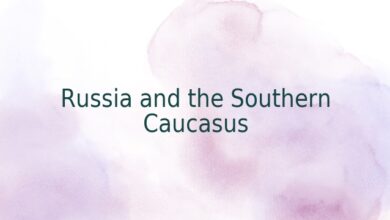
Shakespearean Scholars
Joseph Quincy Adams (1881-1946). Adams was a professor at Cornell University and the director of the Folger Shakespeare Library from 1931 to 1946.
A. C. Bradley (1851-1935). Bradley was a professor of literature at several institutions: the University of Liverpool (1882-90), the University of Glasgow (1890-1900), and Oxford University (1901-06). Bradley published Oxford Lectures on Poetry (1909), which includes an essay on Shakespeare’s Antony and Cleopatra and an essay entitled Shakespeare the Man. Below is an excerpt from Shakespeare the Man, discussing the Sonnets and, in particular, the poet’s relationship with the young man:
The sonnets to the friend are, so far as we know, unique in Renaissance literature in being a prolonged and varied record of the intense affection of an older friend for a younger, and of other feelings arising from their relations. They have no real parallel in any series imitative of Virgil’s second Eclogue, or in occasional sonnets to patrons or patron-friends couched in the high-flown language of the time. The intensity of the feelings expressed, however, ought not, by itself, to convince us that they are personal. The author of the plays could, I make no doubt, have written the most intimate of these poems to a mere creature of his imagination and without ever having felt them except in imagination. Nor is there any but an aesthetic reason why he could not have done so if he had wished. But an aesthetic reason there is; and this is the decisive point. No capable poet, much less a Shakespeare, intending to produce a merely ‘dramatic’ series of poems, would dream of inventing a story that of the sonnets, or, even if he did, of treating it as they treat it. The story is very odd and unattractive. Such capabilities as it has are but slightly developed. It is left obscure, and some of the poems are unintelligible to us because they contain allusions of which we can make nothing….It is all unnatural, well-nigh incredibly unnatural, if, with the most skeptical critics, we regard the sonnets as a free product of mere imagination.
If then there is, as it appears, no obstacle of any magnitude to our taking the sonnets as substantially what they purport to be, we may naturally look in them for personal traits (and, indeed, to repeat a remark made earlier, we might still expect to find such traits even if we knew the sonnets to be purely dramatic). But in drawn inferences we have to bear in mind what is implied by the qualification “substantially”. We have to remember that some of these poems may be mere exercises of art; that all of them are poems, and not letters, much less affidavits; that they are Elizabethan poems; that the Elizabethan language of deference, and also of affection, is to our minds habitually extravagant and fantastic; and that in Elizabethan plays friends openly express their love for one another as Englishmen now rarely do. Allowance being made, however, on account of these facts, the sonnets will still leave two strong impressions – that the poet was exceedingly sensitive to the charm of beauty, and that his love for his friend was, at least at one time, a feeling amounting almost to adoration, and so intense as to be absorbing.
Most of us, I suppose, love any human being, of either sex and off any age, the better for being beautiful, and are not the least ashamed of the fact. It is further the case that men who are beginning, like the writer of the sonnets, to feel tired and old, are apt to feel an increased and special pleasure in the beauty of the young. (Mr. Beeching’s illustration of the friendship of the sonnets from the friendship of Gray and Bonstetten is worth pages of argument). If we remember, in addition, what some critics appear constantly to forget, that Shakespeare was a particularly poetical being, we shall hardly be surprised that the beginning of this friendship seems to have been something like a falling in love; and, if we must needs praise and blame, we should also remeber that it became a ‘marriage of true minds’. And as to the intensity of the feeling expressed in the sonnets, we can easily believe it to be characteristic of the man who made Valentine and Proteus, Brutus and Cassius, Horatio and Hamlet; who painted that strangely moving portrait of Antonio, middle-aged, sad, and almost indifferent to life and death, but devoted to the young, brilliant spendthrift Bassanio; and who portrayed the sudden compelling enchantment exercise by the young Sebastian over the Antonio of T.N..
(Shakespeare the Man. Oxford Lectures on Poetry, 330-34)
However, Bradley is probably best known for his work, Shakespearean Tragedy (1904), which centers on Shakespeare’s four great plays, King Lear, Othello, Hamlet, and Macbeth. Bradley’s analyses have lost some popularity in the late 20th century, but they remain a cornerstone of Shakespearean criticism nonetheless.
Frederick Boas (1862-1957). Boas, a British scholar, was a prolific author who wrote many groundbreaking books about Shakespeare. He originated the term “Problem Play” and studied the works of other noted writers of the day, including Marlowe and Sidney.
Edmund Kerchever Chambers (1866-1954). Chambers was a scholar and civil servant who wrote extensively on Shakespeare and the Elizabethan theatre in general. Some of his more important works include The Elizabethan Stage (1923), and William Shakespeare: A Study of the Facts and Problems (1930). He also edited the Shakespeare Allusion Book (1932).
Samuel Taylor Coleridge (1772-1834). Coleridge is best known for his work as a poet, but he also was a literary critic, who lectured extensively on Shakespeare, between the years 1802 and 1818. His lectures on Richard II, which were published sometime after, contain some of the most profound ideas yet written on the subject. These lectures are available in two volumes from Princeton University Press.
John Payne Collier (1789-1883). Certainly the most infamous of all Shakespearean scholars, Collier published books on his theories between 1835 and 1850. He was respected highly amongst the literary community until his most heinous crime was discovered — that of forging documents to support his theories. He claimed to own original business records from the London theatres, the source for the Tempest, and an annotated copy of Shakespeare’s second folio. There are those who believe that Collier forged even more documents than were discovered at the time, and that they still might be in circulation, and regarded as authentic.
Hardin Craig (1875-1968). Craig was a professor at the University of Missouri and believed that Shakespeare’s work could best be analyzed by concentrating on Tudor society and practices. He wrote The Enchanted Glass: The Elizabethan Mind in Literature in 1935.
Edward Dowden (1843-1913). One of the great Irish literary critics, Dowden taught at Trinity College in Dublin. In 1875 he wrote Shakespeare: A Critical Study of his Mind and Art, which launched his scholarly career and paved the way for other Shakespeare biographers. Dowden’s comments on King Lear, in particular, are to this day quoted regularly:
[On the plot and structure of King Lear]Of the secondary plot of this tragedy–the story of Gloucester and his sons–Schlegel has explained one chief significance: ‘Were Lear alone to suffer from his daughters, the impression would be limited to the powerful compassion felt by us for his private misfortune. But two such unheard-of examples taking place at the same time have the appearance of a great commotion in the moral world; the picture becomes gigantic, and fills us with such alarm as we should entertain at the idea that the heavenly bodies might one day fall from their appointed orbits.’ The treachery of Edmund, and the torture to which Gloucester is subjected, are out of the course of familiar experience; but they are commonplace and prosaic in comparison with the inhumanity of the sisters, and the agony of Lear. When we have climbed the steep ascent of Gloucester’s mount of passion, we see still above us another via dolorosa leading to that “Wall of eagle-baffling mountain/Black, wintry, dead, unmeasured” to which Lear is chained. Thus the one story of horror serves as a means of approach to the other, and helps us to conceive its magnitude. The two, as Schlegel observes, produce the impression of a great commotion in the moral world. The thunder which breaks over our head does not suddenly cease to resound, but is reduplicated, multiplied, and magnified, and rolls away with long reverberation.
(From Shakespeare, His Mind and Art, 1875).
John Dryden (1631-1700). Dryden is a towering figure in the history of English literature. He was a poet, playwright, essayist, translator, and a critic of many of his fellow writers. He was passionate about Shakespeare, but did not worship the dramatist as others did. Dryden’s confidence in his own poetic abilities prompted him to actually rewrite some of Shakespeare’s works, including The Tempest (his version is called The Enchanted Island), Antony and Cleopatra (which he renamed All for Love), and Troilus and Cressida. He found Shakespeare’s tale of Troilus to be particularly bad, referring to it as “a heap of rubbish”. Despite his criticisms, Dryden recognized the brilliance of Shakespeare, as we can see in the following quote, taken from the Prologue to Aureng-zebe:
But in spite of all [the poet’s] pride, a secret shame
Invades his breast at Shakespeare’s sacred name:
Aw’d when he hears his Godlike Romans rage,
He in a just despair would quit the Stage;
And to an Age less polish’d, more unskill’d,
Does with disdain the foremost Honours yield.
T.S. Eliot (1888-1965). Eliot, a major literary figure of the early 20th century, is best known for his poetry, and, in particular, The Waste Land, which propelled him to stardom. But Eliot was also a critic, and he wrote many essays on Shakespeare, his plays, and the Elizabethan era in general. In 1920, Eliot came out with The Sacred Wood: Essays on Poetry and Criticism, which contains a discussion of Hamlet. Although his conclusions about the merit of Shakespeare’s play were negative, Eliot’s analysis is considered to be an important critical work. In the essay, Eliot used the term “objective correlative”, which is now a standard phrase in literary theory. He also published a collection of essays entitled Elizabethan Essays, in 1934, and wrote two poems under the collective title Coriolan, in honor of Shakespeare’s play Coriolanus.
Georg Gottfried Gervinus (1805-1871). Gervinus, a German professor and scholar, had a major impact on the progression of literary theory and criticism in his homeland. He published his thoughts on the plays and sonnets of Shakespeare in 1849, in a collection called Shakespeare Commentaries. The following is an excerpt from his analysis of the Sonnets:
What a living picture would our poet have left behind if, when prompted by his love, he had sung the union of soul with his sweet youth in the free forms suggested by the moment and by the nature of the circumstances! But as he moulded all into this one angular form, which admits of no distinctness and which spreads a dim mist over each tangible meaning, we can readily understand how it was that for so long a time the bare actual circumstances could be misunderstood or overlooked. This one drawback is followed by another, arising equally naturally from the style. The want of reality in these indistinct poems was to be supplied by poetic brilliancy; the relation between the means and the object, between cause and effect, disappears; far-fetched thoughts, strange exaggerated images, and hyperbolic phrases, mislead the understanding; profound conceits and epigrammatic fancies, sparkling for their own sake, cast the subject in question on this very account into the shade. This intensely poetic language does not prevent even the repetition of matter and expression in the same monotonous form, so that the tautology is constant. And as in Lucrece the poet involuntarily experienced surprise at the peculiarities of that conceit-style of the Marinists, here also in the midst of his work he acknowledges (Sonnet 76) that his verse is “barren of new pride, so far from variation or quick change,” that he writes “all one, ever the same,” and keeps his “invention in a noted weed.” In this weed it is not easy to recognize the true and real purport; tact and comparison must teach us not to accept it all too much as simple truth, and yet also not unthinkingly to lose the certain meaning. We are of opinion, with Cunningham and others, that the sonnets of our poet, aesthetically considered, have been overestimated. With respect to their psychological tenor, they appear to us, with the total lack of all other sources for the history of Sh.’s inner life, to be of inestimable value. They exhibit the poet to us just in the most interesting period of his mental development, when he passed from dependent to independent art, from foreign to national taste, from subserviency and distress to prosperity and happiness; aye, even from loose morality to inner reformation. And in addition to the gigantic, scarcely comprehensible picture of his mental development which is presented to us in his dramas of this period, we here receive a small intelligible painting of his inner life, which brings us more closely to the poet himself…. [The friendship treated of in the Sonnets] is a connection in itself of no great importance; nay, in the way in which it is poetically expressed, it is not without distortion. But it testifies to a strength of feeling and passion in our poet, to a childlike nature and a candid mind, to a simple ingenuousness, to a perfect inability to veil his thoughts or to dissemble, to an innate capacity for allowing circumstances to act upon his mind in all their force and for re-acting upon them – in a word, it testifies to a nature as truthful, genuine, and straightforward as we imagine the poet from his dramatic works to have possessed.
(Shakespeare Commentaries, Bunnet trans., 451-52, 463.)
Harley Granville-Barker (1877-1946). Granville-Barker began his career in the arts as an actor at the age of 14. He soon became a director, and from 1904-1907 he produced plays at the Royal Court Theatre. Although he was primarily interested in staging the plays of modern writers such as Ibsen and Galsworthy, and only produced three of Shakespeare’s dramas, his style and interpretation of the Bard’s plays revolutionized the way Shakespeare is presented in the theatre. In 1923, Granville-Barker started writing his Prefaces to Shakespeare’s plays. His focus was the analysis of Shakespeare from the vantage point of a producer rather than a scholar — the latter having previously dominated discussions of Shakespeare’s work. He continued to write his Prefaces until his death in 1946, and his writings have been a cornerstone of Shakespearean criticism ever since. Here is a sample of his writing on King Lear, taken from his Prefaces to Shakespeare (First Series, 1927):
King Lear was meant to be acted. Inadequate and misdirected acting of it there may be, by which we must not judge it; and no perfect performance of any play by imperfect human beings can there ever be. Shakespeare may have been wrong to make a play of it. Nor, if he did strain his medium of expression beyond endurance, would he be the first great artist to do so. But he put his purpose to the proof; and so should we — to every proof, before we ignore this for the sake of disparate gains beyond.
William Hazlitt (1778-1830). “Prosperity is a great teacher; adversity a greater”. These are the words of William Hazlitt, the English critic, essayist, lecturer, and journalist. Hazlitt wrote a landmark work called Character’s of Shakespeare’s Plays, in 1817. The focus of his text is Shakespeare’s poetic style, which had previously been overlooked by literary critics and scholars. Hazlitt had his share of personal problems, including a temporary descent into madness over the all-consuming passion for his mistress, Sara Walker. By 1823, Hazlitt was divorced and penniless, and even spent a short time in jail for his inability to pay his debts. Before his death he managed to turn his life around and remarried (although his second marriage ended in separation). He resumed his writing career and composed a wonderful yet underrated work entitled Life of Napoleon in 1828.
Gotthold Ephraim Lessing (1729-1781). Lessing was a German philosopher, critic, and dramatist. His critical essays, Hamburgische Dramaturgie (1767-69), denounced French classical theater and argued that Shakespeare and the Greek dramatists should be the primary models for German playwrights. Click here to read an essay about Hamburgische Dramaturgie. His own plays include Miss Sara Sampson (1755), Minna von Barnhelm (1763), Emilia Galotti (1772), and Nathan the Wise (1779).
Edmund Malone (1741-1812). Hailed by many as England’s greatest Shakespearean scholar of the eighteenth-century and possibly one of the greatest of all time. Malone’s An Attempt to Ascertain the Order in Which the Plays of Shakespeare Were Written (1778) was the first attempted chronology of Shakespeare’s work, and his Historical Account of the Rise and Progress of the English Stage, and of the Economy and Usages of the Ancient Theatres in England (1800) was a groundbreaking work on English drama. The following excerpt from The Historical Account is Malone’s description of Shakespeare, prompted by some facts relayed by a writer named John Aubrey:
[According to John Aubrey] “William Shakespeare’s father was a butcher, and I have been told heretofore by some of the neighbours, that when he was a boy, he exercised his father’s trade; but when he killed a calfe, he would do it in a high style, and make a speech. This William, being inclined naturally to poetry and acting, came to London, I guesse about 18. and was an actor at one of the playhouses, and did act exceedingly well. Now Ben Jonson was never a good actor, but an excellent instructor. He began early to make essays in dramatique poetry, which at that time was very lowe, and his plays took well. He was a handsome well shaped man; verie good company, and of a very ready, and pleasant, and smooth witt. The humour of the constable in A Midsommer-night Dreame he happened to take at Crendon in Bucks, (I think it was Midsommer-night that he happened to be there;) which is the road from London to Stratford; and there was living that constable about 1642. when I came first to Oxon. Mr. Jos. Howe is of the parish, and knew him. Ben Jonson and he did gather humours of men wherever they came. One time as he was at the taverne at Stratford, Mr. Combes, an old usurer, was to be buryed; he makes then this extemporary epitaph upon him:Ten in the hundred the Devill allowes,
But Combes will have twelve, he sweares and he vowes:
If any one aske who lies in this tomb,
Hoh! quoth the Devill, ‘tis my John o’Comb.He was wont to go to his native country once a yeare, I think I have been told that he left near 300 pounds to a sister. He understood latin pretty well; for he had been in his younger yeares a schoolmaster in the country.”
Let us now proceed to examine the several parts of this account.
The first assertion, that our poet’s father was a butcher, has been thought unworthy of credit, because “not only contrary to all other tradition, but, as it may seem, to the instrument in the heralds-office,” But for my own part, I think, this assertion, (which it should be observed is positively affirmed on the information of his neighbours, procured probably at an early period,) and the received account of his having been a wool-stapler, by no means inconsistent. Dr. Farmer has illustrated a passage in Hamlet from information derived from a person who was at once a wool-man and butcher; and, I believe, few occupations can be named, which are more naturally connected with each other. Mr. Rowe first mentioned the tradition that our poet’s father was a dealer in wool, and his account is corroborated by a circumstance which I have just now learned. In one of the windows of a building in Stratford which belonged to the Shakspeare family, are the arms of the merchants of the staple;–Nebule, on a chief gules, a lion passant, or; and the same arms, I am told, may be observed in the church at Stratford, in the fret-work over the arch which covers the tomb of John de Clopton, who was a merchant of the staple, and father of Sir Hugh Clopton, lord-mayor of London, by whom the bridge over the Avon was built. But it should seem from the records of Stratford that John Shakspeare, about the year 1579. at which time his son was fifteen years old, was by no means in affluent circumstances; and why may we not suppose that at that period he endeavoured to support his numerous family by adding the trade of a butcher to that of his principal business; though at a subsequent period he was enabled, perhaps by his son’s bounty, to discontinue the less respectable of these occupations? I do not, however, think it at all probable, that a person who had been once bailiff of Stratford should have suffered any of his children to have been employed in the servile office of killing calves.
Mr. Aubrey proceeds to tell us, that William Shakspeare came to London and began his theatrical career, according to his conjecture, when he was about eighteen years old;–but as his merit as an actor is the principal object of our present disquisition, I shall postpone my observations on this paragraph, till the remaining part of these anecdotes has been considered. We are next told, that “he began early to make essays in dramatique poetry, which at that time was very lowe, and his playes took well.”
On these points, I imagine, there cannot be much variety of opinion. Mr. Aubrey was undoubtedly mistaken in his conjecture, (for he gives it only as conjecture,) that our poet came to London at eighteen; for as he had three children born at Stratford in 1583 and 1584. it is very improbable that he should have left his native town before the latter year. I think it most probable that he did not come to London before the year 1586. when he was twenty-two years old. When he produced his first play, has not been ascertained; but if Spenser alludes to him in his Tears of the Muses, Shakspeare must have exhibited some piece in or before 1590. at which time he was twenty-six years old; and though many have written for the publick before. they had attained that time of life, any theatrical performance produced at that age, would, I think, sufficiently justify Mr. Aubrey in saying that he began early to make essays in dramatick poetry. In a word, we have no proof that he did not woo the dramatick Muse, even so early as in the year 1587 or 1588. in the first of which years he was but twenty-three: and therefore till such proof shall be produced, Mr. Aubrey’s assertion founded apparently on the information of those who lived very near the time, is entitled to some weight.
“He was a handsome well-shaped man, verie good company, and of a very ready, and pleasant, and smooth witt.”
I suppose none of my readers will find any difficulty in giving full credit to this part of the account. Mr. Aubrey, I believe, is the only writer, who has particularly mentioned the beauty of our poet’s person; and there being no contradictory testimony on the subject, he may here be safely relied on. All his contemporaries who have spoken of him, concur in celebrating the gentleness of his manners, and the readiness of his wit. “As he was a happy imitator of nature, (say his fellow comedians,) so was he a most gentle expresser of it. His mind and hand went together; and what he thought he uttered with that easiness, that we have scarce received from him a blot in his papers.” “My gentle Shakspeare,” is the compellation used to him by Ben Jonson. “He was indeed (says his old antagonist) honest, and of an open and free nature; had an excellent fancy, brave notions, and gentle expressions; wherein he flowed with that facility, that sometimes it was necessary he should be stopped. Sufflaminandus erat, as Augstus said of Haterius.” So also in his verses on our poet:
Look how the father’s face
Lives in his issue, even so the race
Of Shakspeare’s mind and manners brightly shines
In his well-torned and true-filed lines.In like manner he is represented by Spenser (if in The Tears of the Muses he is alluded to, which, it must be acknowledged, is extremely probable,) under the endearing description of “our pleasant Willy,” and “that same gentle spirit, from whose pen flow copious streams of honey and nectar.” In a subsequent page I shall have occasion to quote another of his contemporaries, who is equally lavish in praising the uprightness of his conduct and the gentleness and civility of his demeanour. And conformable to all these ancient testimonies is that of Mr. Rowe, who informs us, from the traditional accounts received from his native town, that our poet’s “pleasurable wit and good-nature engaged him in the acquaintance and entitled him to the friendship of the gentlemen of his neighbourhood at Stratford.” A man, whose manners were thus engaging, whose wit was thus ready, and whose mind was stored with such a plenitude of ideas and such a copious assemblage of images as his writings exhibit, could not but have been what he is represented by Mr. Aubrey, a delightful companion.
“The humour of the constable in A Midsommer-night-Dreame he happened to take at Crendon in Bucks, (I think it was Midsomer-night that he happened to be there:) which is the road from London to Stratford; and there was living that constable about 1642 when I came first to Oxon. Mr. Jos. Howe is of the parish, and knew him.”
It must be acknowledged that there is here a slight mistake, there being no such character as a constable in A Midsummer-Night’s Dream. The person in contemplation undoubtedly was Dogberry in Much Ado about Nothing. But this mistake of a name does not, in my apprehension, detract in the smallest degree from the credit of the fact itself; namely, that our poet in his admirable character of a foolish constable had in view an individual who lived in Crendon or Grendon, (for it is written both ways,) a town in Buckinghamshire, about thirteen miles from Oxford. Leonard Digges, who was Shakspeare’s contemporary, has fallen into a similar errour; for in his eulogy on our poet, he has supposed the character of Malvolio, which is found in Twelfth Night, to be in Much Ado about Nothing. As some account of the person from whom Mr. Aubrey derived this anecdote, who was of the same college with him at Oxford, may tend to establish its credit, I shall transcribe from Mr. Warton’s preface to his Life of Sir Thomas Pope, such notices of Mr. Josias Howe, as he has been able to recover.
“He was born at Crendon in Bucks, [about the year 1611] and elected a scholar of Trinity College June 12. 1632. admitted a fellow, being then bachelor of arts, May 26. 1637. By Hearne he is called a great cavalier and loyalist, and a most ingenious man. He appears to have been a general and accomplished scholar, and in polite literature one of the ornaments of the university. In 1644 he preached before King Charles the First, at Christ Church cathedral, Oxford. The sermon was printed, and in red letters, by his majesty’s special command — soon after 1646. he was ejected from his fellowship by the presbyterians; and restored in 1660. He lived forty-two years, greatly respected, after his restitution, and arriving at the age of ninety, died fellow of the college where he constantly resided, August 28. 1701.”
Mr. Thomas Howe, the father of this Mr. Josias Howe, (as I learn from Wood) was minister of Crendon, and contemporary with Shakspeare; and from him his son perhaps derived some information concerning our poet, which he might have communicated to his fellow-collegian, Aubrey. The anecdote relative to the constable of Crendon, however, does not stand on this ground, for we find that Mr. Josias Howe personally knew him, and that he was living in 1642.
(Malone’s Historical Account of the Rise and Progress of the English Stage, 1800).
A.L. Rowse (1903-1997). Rowse was an English historian and author who became one of the best-known Shakespearean scholars in recent times. He studied modern history at Oxford and, after his graduation in 1925, he was elected a fellow of All Souls College at Oxford. His finest accomplishment is the historical trilogy The Elizabethan Age (1950-72), made up of the three volumes entitled The England of Elizabeth (1950), The Expansion of Elizabethan England (1955), and The Elizabethan Renaissance (1971-72). His final book was Historians I Have Known, published in 1995.
Dover Wilson (1881-1969). Wilson was professor of education at King’s College, London (1924-35), and professor of English literature at the University of Edinburgh (1935-45). He served as editor of the New Cambridge edition of William Shakespeare’s plays (from 1921) and was a trustee of Shakespeare’s birthplace. His works include, What Happens in Hamlet (1959); Shakespeare’s England: A Book of Elizabethan Prose (1911); The Essential Shakespeare: A Biographical Adventure (1932); The Fortunes of Falstaff (1943), Shakespeare’s Happy Comedies (1962); and Shakespeare’s Sonnets (1963).





